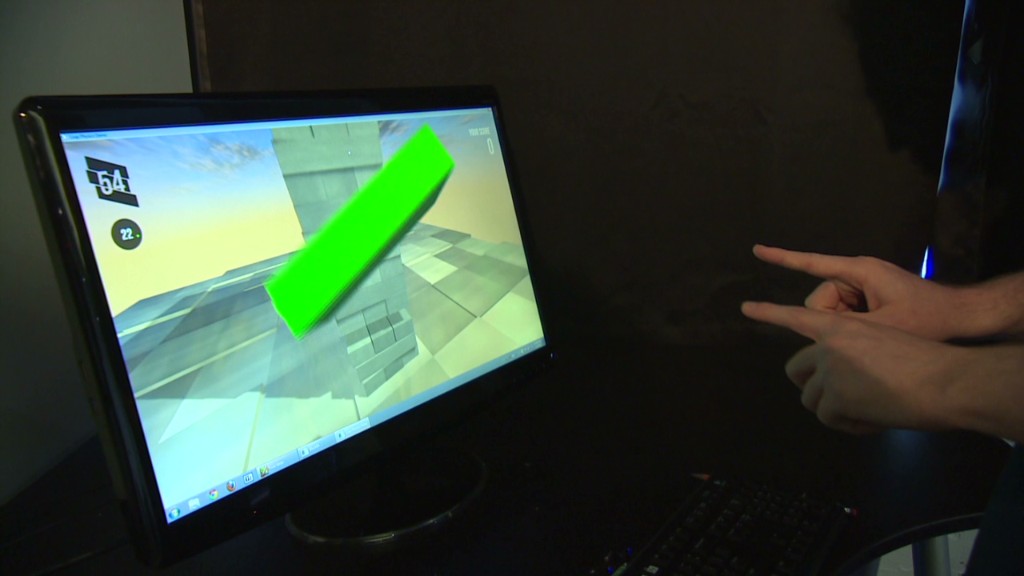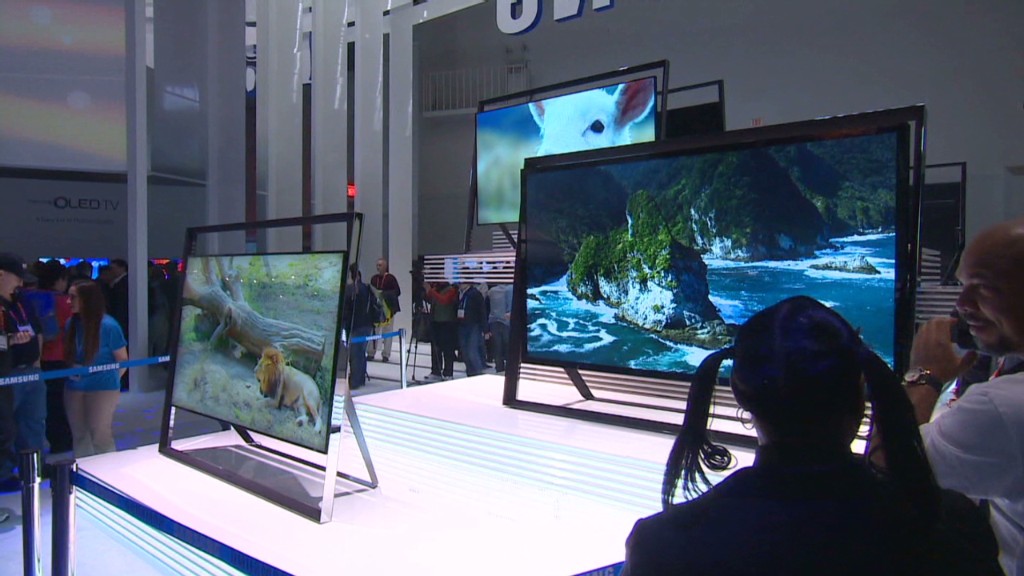
Computer mouse, your days are numbered. Mouse-less computing is the hot new tech frontier: laptops and tablets controlled by touch, voice, eye-tracking and hand movements.
Gesture control is particularly hot, with smart TVs and lots of experimental startups emerging on the scene. One of those startups, Leap Motion, aims to bring the technology to the mass market with a new Best Buy retail partnership.
Leap Motion, which has several Apple veterans in executive ranks, will sell a $70 controller at Best Buy (BBY) starting in the spring. Pre-orders begin in February.
CNNMoney checked out the Leap Motion Controller during a demo at the Consumer Electronics Show (CES) in Las Vegas last week. A long list of gesture-control companies were showing off their inventions at CES, but Leap Motion's sophisticated system stood out.

The controller itself is an unassuming 3-inch-by-1-inch-by-0.5-inch black box. Leap Motion can track the movements of all 10 fingers on your hand down to 1/100th of a millimeter, which is smaller than the tip of a pin. CNNMoney tried the system on a laptop, and the response was lightning-fast, tracking movements at 290 frames per second.
That lack of delay was a major priority in development, says Leap Motion co-founder and CEO Mike Buckwald -- especially because the company wants its technology to be in more than just your PC.
"Precision is important, but it's also the lack of latency. Your brain gets confused if what's on the screen isn't moving at essentially the same exact time as your hand," Buckwald says. "If you want to use this on something like robotic surgery, you need zero latency."
Robotic surgery could well be in Leap Motion's future, says company president and COO Andy Miller.
"We've had licensing talks in a lot of fields: autos, health care, even fast food," Miller says. "We've been contacted by pretty much everyone you can think of."
The rise of mouse-less computing -- or as Miller puts it, a "disappearing user interface" -- comes as consumers are getting used to device features triggered by voice and gestures.
Related story: 6 visions for your future computer
"The consumer psyche has been seeded with [Microsoft's] Kinect and [the iPhone's] Siri," Miller says. "That gives us momentum at Leap, because people want to control their world."
Still, gesture- and voice-control remain novelties to most consumers. Ditching the mouse could take some time.
"If you do it wrong, or push it too fast, people would think, 'I don't know the sign language, and I'm not using this,'" says Buckwald, the Leap Motion CEO.
Leap Motion is working on programs and games to help customers get used to the hand movements. CNNMoney tried out an in-development game similar to Jenga.
In the meantime, Miller admits the mouse still has some pluses.
"We think eventually the mouse will disappear. But there are still some uses for it. For example, [Leap isn't] great for spreadsheets right now," Miller says. "But in the future, that could change. It all could change."

